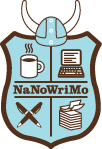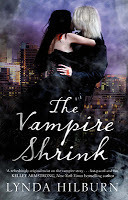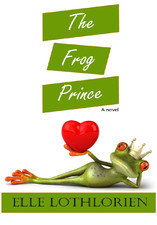Thy shall not suck

Mario here:
Now that we're done with NaNoWriMo for 2011, the next question is: what to do with your literary masterpiece?
Simple answer: Get it published.
Uff! As daunting as writing a book can be, we've all learned that getting published is the next roll of barbed wire to crawl through. There's the ordeal of query letters and rejections, false starts with a bad agent, dashed hopes with a pussy-footing editor and publishing house...and the waiting, the waiting...for months...years maybe for something positive to happen.
Once you've done the run-around with the big New York publishing houses, you might look to a mid-sized press, and then smaller presses. Going for prestige, as it were.
And there's the siren call of self-publishing. At least you have a book in print. If that's all you want, then go for it. But if you want to reach the masses and perhaps make a little money, then self-publication presents huge challenges of its own. One of which is distribution for the mountain of books in your garage. A lot of those trials are spewed in this rant posted to another blog regarding self-publication:
@font-face { font-family: "Times"; }@font-face { font-family: "Cambria"; }p.MsoNormal, li.MsoNormal, div.MsoNormal { margin: 0in 0in 0.0001pt; font-size: 12pt; font-family: "Times New Roman"; }div.Section1 { page: Section1; }
I work as an event coordinator/marketer for an independent bookstore that has been inundated in recent years with self-published authors looking for shelf space and store events for their books. We get – and I am not exaggerating – between 400 and 500 requests a year from self-published authors asking us to stock and promote their book. On a slow week, we get 5-10 requests; on a busy week we'll get 20.
If you ask most indie bookstore event coordinators about self-published authors, you will probably see some combination of eye-rolling, teeth grinding, or derisive laughter. Self-published authors are the bane of our existence. There are so, SO many would-be self-published authors that would do well to read this piece, and read it thoroughly. And then second-guess their decision to self-publish. But I know they won't.
Why do I loathe (most) self-published authors? Here's why. And I'm saying all this so maybe – MAYBE – there's a self-published author out there who will read this and then understand what they are up against when it comes to marketing their self-published book through their friendly neighborhood indie bookstore.
1. Their books suck. There is no other way to say this. Bad writing, bad grammar, bad spelling, bad plot/character development, bad subject matter, etc. Don't even get me started on do-it-yourself cover art. The book is bad. It's bad. That's why it couldn't get published by a traditional publisher. But you can't tell the self-published author of this monstrosity that their book is substandard and unsellable. Because they would act like you've just told them their brand-new firstborn child is ugly. Hey, I get it. You put a lot of work into this thing, and you ended up with an ugly baby. But that doesn't change the baby's looks, or the book's ability to sell.
2. 90% of self-published authors are rude, pushy, completely self-absorbed, and relentless. This is my BOOK! It's my MASTERPIECE. How dare you say it is not worthy of being stocked in your store, unless I pay for consignment?? How dare you, to not jump up and down and beg me to do an event for this book – even though I am not really from around here, I have no friends, and the book has only a very narrow niche appeal since it's about my past life experience as a 16th century vampire with a skin condition?? Some of them don't even bother to pitch the book themselves, but hire some poor hapless "freelance literary agent" to do it for them. Then relentlessly prod the "agent" to get them an event. THE BOOK SUCKS. IT'S NOT HAPPENING.
3. Self-published authors show a really appalling level of self-non-awareness. EVERY self-published author thinks they are the next Stephenie Meyer/James Patterson/That Guy on Amazon Who Sold a Million E-Books. EVERY self-published author thinks their memoir about going on a hiking trip to Alaska where nothing particularly dramatic happened is "special" and that "people will love it!" EVERY self-published author thinks they have written the new breakout bestseller, YA sensation, Great American Novel. I hear the same words from the same types of people over and over and over, about how their books are "different." The books are never different. 50% of them have badly Photoshopped covers and are printed in Comic Sans.
You wrote a book. Congratulations. Let me make this clear. WRITING THE BOOK AND PAYING SOMEONE TO PRINT IT FOR YOU DOES NOT MAKE YOU SPECIAL. If the book is actually good – and in the several thousand requests I've processed, I've seen three or four that actually were – THAT makes you special. But please, PLEASE stop acting like paying AuthorHouse or Smashwords or any other vanity publisher a few thousand dollars entitles you to anything. It doesn't. Not the adoration of untold legions of fans. Not the respect and admiration of your local indie bookseller. Not sales from your friends (who 80% of the time, from what I can see, end up with free copies rather than purchased ones). Not attention from local or national media. Self-publishing means that instead of the book manuscript being stuck in a drawer, there's a 99% chance you'll end up with boxes of unsold books in your garage. Fewer than 1% of self-published authors sell more than 150 copies of their book.
Please think about all this, self-publishing authors, before you give your credit card number to Smashwords.
Whew! Edan Lepucki at The Millions adds her two cents about why not to self-publish.
But the game changer is e-publishing and the growing availability of e-readers. No more stacks of books to buy. No more cranky bookstore managers to pester. While a lot of writers have flung their scribblery poo into cyberspace, e-publishing has given many worthwhile authors a second chance. The loudest screamer in this argument is of course, Joe Konrath.

But closer to home, is Lynda Hilburn's experience of buying back her book, The Vampire Shrink, and repackaging the manuscript as an ebook to restart interest in her work (which became an Amazon bestseller!), and garnered her a new publishing contract and this nifty new cover. You could say that both Konrath and Hilburn had the advantage of a known name.
 But that's not always the case. For example, Elle Lothlorien, frustrated in trying to find a home for her thriller, gave up on the traditional route. She instead self-published a romantic comedy, The Frog Prince, on Amazon and made their bestseller list, elbowing aside competitors from traditional publishers. But there are others whose Internet sales can be counted in the teens.
But that's not always the case. For example, Elle Lothlorien, frustrated in trying to find a home for her thriller, gave up on the traditional route. She instead self-published a romantic comedy, The Frog Prince, on Amazon and made their bestseller list, elbowing aside competitors from traditional publishers. But there are others whose Internet sales can be counted in the teens.With tens of thousands of choices, how do people chose an ebook?
Surprisingly, the decision is not too different from folks buying a traditional paper copy off the shelves.
The Big Five Reasons people buy a book
1) People are familiar with the author.
2) Word-of-mouth recommendations.
3) The cover.
4) The back cover copy (or the description on the website).
5) Reviews and press.
For you as yet unpublished, item 1 you can't do much about. 2 and 5 are iffy. In all three cases, learning the fine art of Blatant Self-Promotion is key. But the cover and back cover copy are yours alone to create, or screw-up.
Remember that adage: Don't judge a book by its cover?
Well, it ain't true. First of all, a good cover catches the eye and that's a huge plus. A cover tells readers what kind of a story to expect. Romantic comedy? Hard-boiled noir? Political thriller? A bad cover, and especially with self-published work, a cover that says Photoshopped will mark your work as amateurish and in need of serious editing. In other words to the reader, pass.
Thoughts or experience with ebooks, both as a writer or reader, are welcome. Until then, keep your head down as you crawl through the barbed wire.
Mario Acevedo's Blog
- Mario Acevedo's profile
- 270 followers



